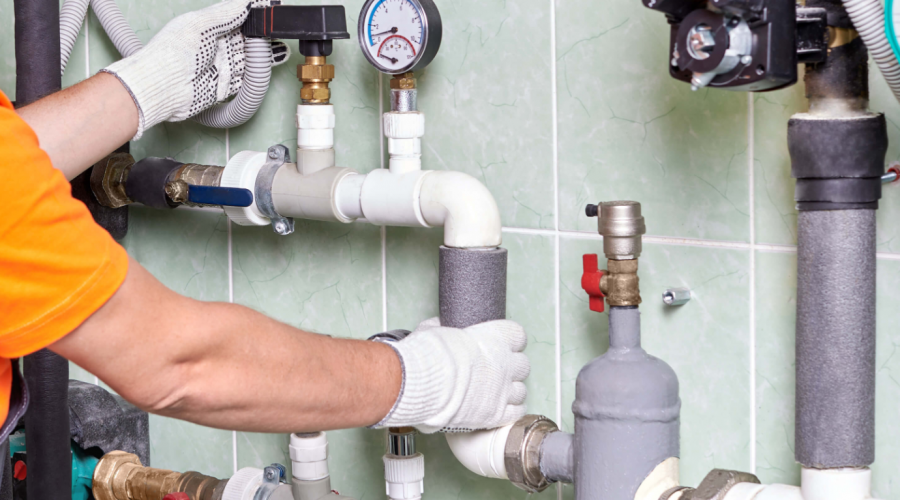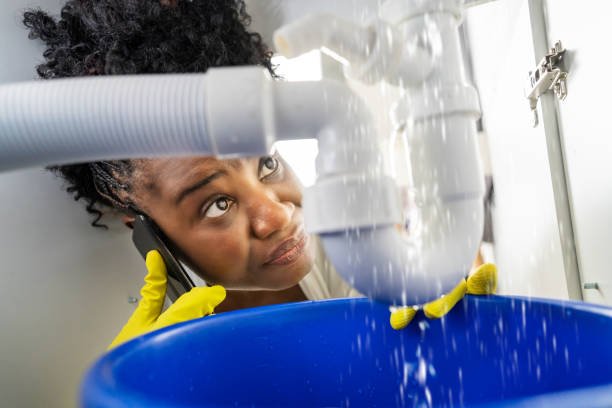Immediate Tips for Critical Situations Until Support Arrives
Immediate Tips for Critical Situations Until Support Arrives
Blog Article
What're your ideas with regards to What to Do While Waiting for an Emergency Plumber?

Plumbing emergencies can strike any time, creating anxiety and prospective damage to your home. Whether it's a burst pipeline, a clogged up drainpipe, or a leaking tap, understanding exactly how to take care of the scenario till an expert plumbing technician shows up can save you from further difficulties. This post offers important emergency pipes ideas to assist you reduce damages and gain back control during a plumbing crisis.
Switch off the Water System
The initial step in any kind of plumbing emergency is to shut down the water system. For localized issues, such as a dripping tap or toilet, switch off the shutoff near the fixture. When it comes to a significant leakage or ruptured pipe, situate your home's primary water shut-off valve and transform it off promptly. Knowing the area of these valves beforehand can conserve important time throughout an emergency situation.
Address Small Leakages with Short-term Fixes
Little leakages can quickly come to be considerable problems if left untreated. Use these short-lived repairs till expert help shows up:
While these fixes aren't irreversible, they can help lessen water loss and damages.
Unclog Drains Safely
A stopped up drainpipe can be a frustrating and untidy concern. Below's how to tackle it:
If these approaches do not function, avoid using excessive pressure, as it might worsen the blockage.
Manage Overflowing Toilets
An overflowing toilet can cause instant mayhem. Right here's what you must do:
Shut Off Your Water Heater
In particular emergency situations, such as a ruptured pipeline, it's wise to shut down your hot water heater. This protects against getting too hot or damages to the device when water quits moving. Switch off the power supply to the hot water heater (electrical or gas) and allow it cool off to prevent prospective dangers.
Briefly Stop a Burst Pipe
A burst pipe can result in considerable water damage in minutes. To mitigate the issue:
Call a specialist plumbing technician right away to address the trouble permanently.
Take Care Of Frozen Water Lines Thoroughly
In cooler environments, frozen pipelines are a typical emergency situation. If you presume a frozen pipeline:
Protect against Additional Damages
Taking quick activity to reduce damage can save you money and time over time. Below's exactly how:
. Have an Emergency Pipes Set
Prepare a standard plumbing emergency situation kit to take care of minor concerns efficiently. Your package ought to consist of:
Having these tools handy can make a significant distinction in your capacity to handle emergency situations.
Know When to Call a Professional.
While quick fixes can assist temporarily, specific pipes issues need prompt professional interest. Call a plumber if:.
Quickly calling a specialist makes certain the issue is fixed appropriately and prevents more complications.
Final thought.
Pipes emergency situations can be frustrating, but with the best understanding and devices, you can take care of the scenario effectively until assistance shows up. By switching off the water, addressing small leaks, and utilizing momentary solutions, you can decrease damages and maintain your home safe. Remember, these tips are short-term services; always seek advice from an accredited plumbing technician to manage the origin of the trouble. Prep work and fast reasoning are your ideal allies in any kind of pipes emergency situation.
8 Helpful Tips for Managing Plumbing Emergencies at Home
If your plumbing system hasn’t failed once, wait for it because almost everyone has a story to tell. Sometimes, it could be simple emergencies such as a leaking pipe, a blocked cistern, or even a big burst pipe. In situations like this, you need to have some handy tips to save you some money and from possible damages.
Take care of minor issues early.
Sometimes, you could have avoided an emergency by taking proactive measures while it was still early. Some major plumbing emergencies can be a result of an ignored minor issue. We recommend that you have items like plumbing tapes and other related items. A plumbing tape can allow you to manage minor leaks before the plumber arrives.
Cut off the water supply.
This tip is essential in almost any type of leakage problem. For problems like minor leakages in the toilet or kitchen, turn off the supply that takes water to the affected pipes. If the leakage is a major pipe, you must shut off the supply valve to the entire building. This will help you avoid flooding your home and neighbors if you share a flat.
Know your plumbing system
Folks typically move into a new apartment without understanding the water supply around the building. This can prove disastrous if a water emergency arises and the plumber is far away. The previous tip will prove useless if you don’t practice this one. More importantly, know where your water shut-off valve is located – you’ll need that knowledge to prevent potential home floods.
Have some common handy tools
There are lots of plumbing emergencies that you can handle without hiring a plumber. That’s why you must keep some tools available always. Some tools that you can use to fix simple plumbing emergencies easily include plumbing tapes, screwdrivers, thread seal tapes, plungers, pliers, tape measures, and rubber gloves.
Insulate your pipes from cold
You’ll save yourself from many plumbing expenses if you protect your water pipes from the cold. This is because of the harmful effects that cold weather can have on your pipes. During winter, your pipes can burst from being overly expected to freezing temperatures. So, make sure insulators are there to keep the pipes working correctly.
Avoid practices that will clog your toilet.
Many people indulge in practices that can damage the plumbing system of the entire building. One of these is when they use their toilet to dispose-off garbage. They flush all kinds of things, such as paper towels, bandages, hairs, female sanitary products, etc., down the toilet. This will block your toilet in the long run, incurring unnecessary expenditures. Dump such waste in the trash instead.
Check your dials regularly.
Sometimes, there could be leakages in your home without noticing them in time. So, constantly monitor your water meter dial. If the dial is reading when there is nobody using water, this is an indicator that there is leaking. Check for leaks immediately. Call a plumber as soon as possible if you can’t find any.
https://www.constructionplacements.com/8-helpful-tips-for-managing-plumbing-emergencies-at-home/

I am just very occupied with Expert Tips for Managing a Plumbing Emergency Until Help Arrives and I am hoping you liked the blog posting. Kindly take the opportunity to promote this post if you appreciated it. Thanks a bunch for your time. Don't hesitate to pay a visit to our site back soon.
Call Today Report this page